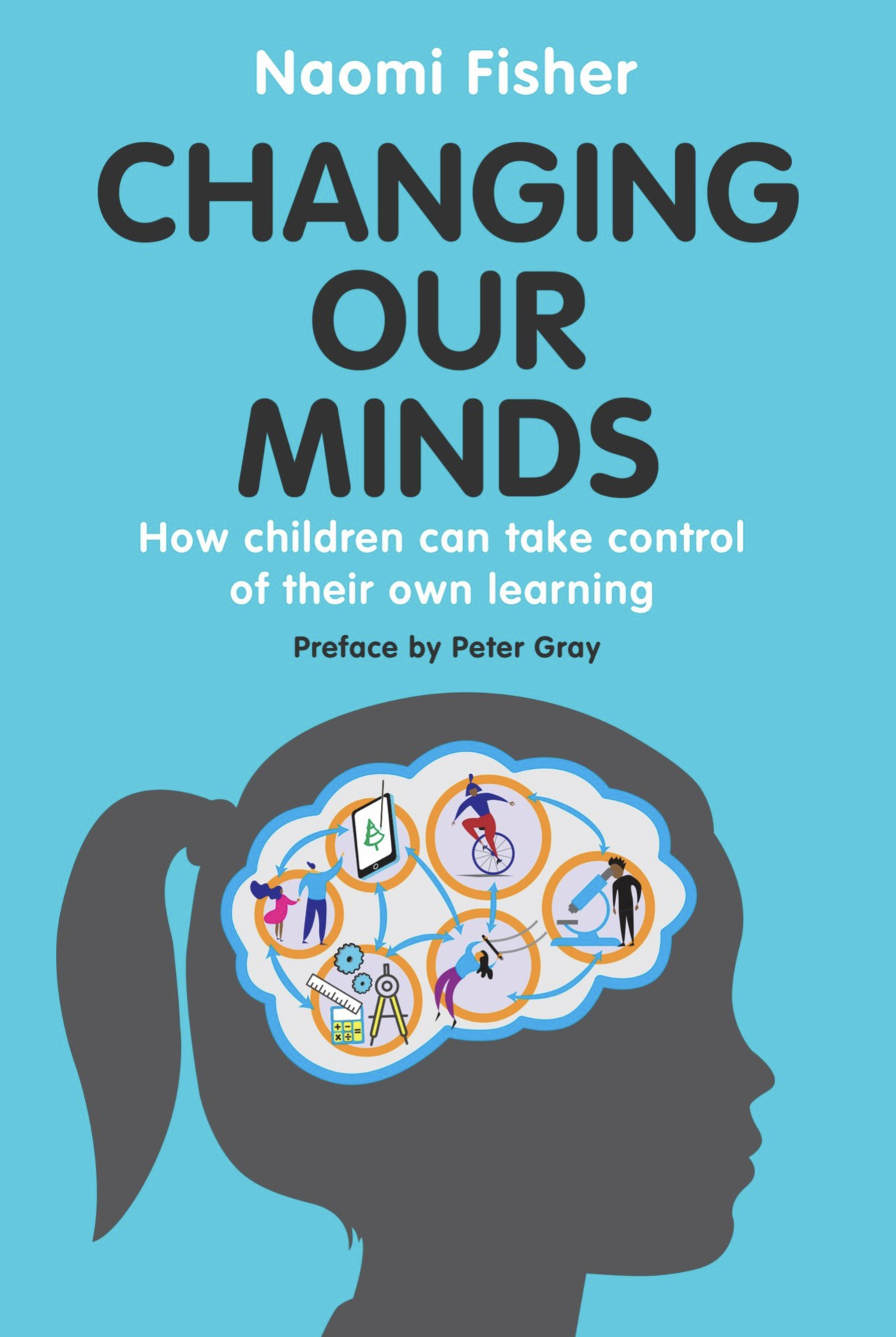Changing Our Minds How children can take control of their own learning
Author: Naomi Fisher Publisher: London, UK: Robinson Publishing. Publish Date: 2021-2-4 Status:⏳ Rating:
Nebulas
- Changing Our Minds Chapter 2. Learning – Scientists, Processors and Rats
- Changing Our Minds Chapter 3. Motivation – Stars, Stickers and Smiley Faces
- Changing Our Minds Chapter 4 Self Directed Learning What Happens When We Don’t Make Children Learn
Notes
Amount: 22
- Behaviorism assumes that it is external entities that control learning
- Psychologists were quick to begin using conditioning on children soon after it’s conception
- Around the 1960s, cognitive psychologists became dissatisfied with behaviorism for understanding learning and started focusing more on thought
- Cognitive scientists measured learning through observation of natural learning or through tests in controlled settings
- The cognitive science approach to learning strips it of it’s context and meaning to the student
- A cognitive model of learning which suggests that learning is only the commitment of information to long-term memory has gained precedence in schools
- Schools have extrapolated form chess professionals that storing information into long-term memory ahead of time will prepare them for expertise later
- People become experts in something by actively doing it rather than by preparing for it
- Experts have purpose and context in what they learn because they have chosen to learn it
- The cognitive approach to learning overlooks the role of environment in a students capacity to learn something
- Children make logical choices based on what they already know when confronted with contradictory information
- Instructing a child’s education can prevent them from learning other possibilities by making them more likely to imitate
- Children learn by actively using their own prior knowledge to understand new experiences
- Informally educated children learn through personal observation and imitation, whereas school children tend to learn by waiting for someone else to show them what to do
- Education should be oriented toward whatever is important in the students particular culture and environment
- Community of practice
- Learning outside of school involves active doing and purpose, whereas learning in school involves abstracted standardized outcomes
- Learning by immersion makes it difficult to ascertain ones progress because their are no preconfigured testing methods
